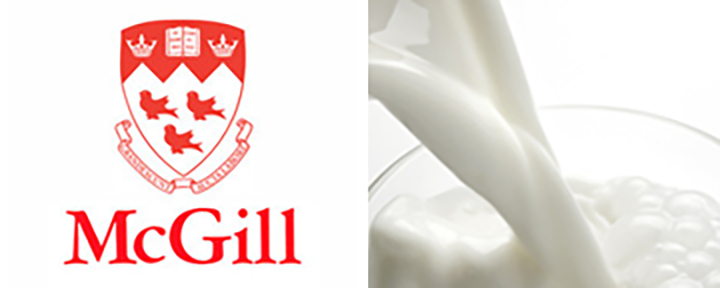NMPF Requests Correction to Canadian Study Falsely Claiming Milk Spreads Foodborne Illness
March 1, 2018
 In a strongly-worded letter to a Canadian university, National Milk admonished two authors of a recent study that cited research falsely describing milk as a high-risk factor in spreading foodborne illness. NMPF insisted that the study’s authors must clarify that any significant dairy-related food safety risk is only associated with the consumption of raw milk, not commonly sold pasteurized products.
In a strongly-worded letter to a Canadian university, National Milk admonished two authors of a recent study that cited research falsely describing milk as a high-risk factor in spreading foodborne illness. NMPF insisted that the study’s authors must clarify that any significant dairy-related food safety risk is only associated with the consumption of raw milk, not commonly sold pasteurized products.
Prepared by a graduate student at McGill University and published in the Journal of Food Science and Technology, the study compared the nutritional profiles of four imitation dairy beverages and conventional cow’s milk. The research demonstrated that none of the plant-based imitations replicates the nutritional benefits of real milk. However, the study also published inaccurate claims that cow’s milk “has been associated to cause wide spread disease outbreaks around the world.”
“To publish such an egregious claim in a scientific journal could damage consumer trust in this great beverage, which is why we insist that the study’s authors issue a correction to the journal article and revise its press release immediately,” said NMPF’s Beth Briczinski.
In a letter sent in February to the study’s authors, NMPF rebuked the claim, saying it is actually raw, unpasteurized milk that is a demonstrable source of pathogens. The public health risk associated with raw milk is supported by scientific evidence spanning over one hundred years. Raw milk is a key vehicle in the transmission of human pathogens like E. coli, Listeria and Salmonella, the letter said. The U.S. Centers for Disease Control and Prevention (CDC) have reported that over 70 percent of foodborne outbreaks involving dairy are attributed to raw milk. It is illegal in both Canada and many U.S. states.
“There is no basis for your statement linking milk consumption to worldwide foodborne outbreaks,” said the letter. “Such a comment has the potential to do incredible, unjustified harm to our industry and has the potential to cause fear in consumers who are seeking nutrient-dense and safe products for themselves and their families.”
NMPF later submitted to the journal a formal Letter to the Editor to clarify the study’s misconception of dairy food safety, saying: “The food safety risk of consuming cow’s milk is misrepresented and thus the authors’ focus has the potential to place unwarranted doubts into consumers’ minds as to the safety of all dairy products.”






